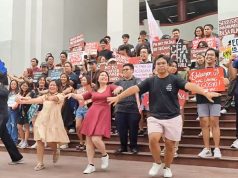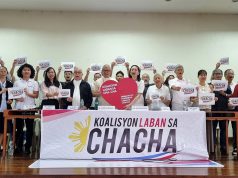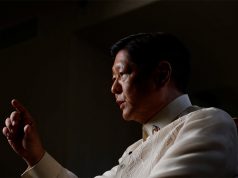(Atty. Ramon Miguel Samson is a professor at the Ateneo De Manila University School of Law and has just finished his Masters of Law from Columbia University)
By the time this article makes it online, there would have been a whole number of takes on the January 11, 2018 Decision of the Securities and Exchange Commission to revoke the Certificate of Incorporation of Rappler, a popular Philippine news website.
Briefly put, the Decision holds Rappler “liable for violating the constitutional and statutory Foreign Equity Restrictions in Mass Media.” This finding is based on an analysis of Rappler’s relationships with certain foreign parties which hold Philippine Depositary Receipts (PDRs) covering Rappler shares. According to the SEC, the restriction on foreign equity for mass media companies means that there should be 100% control by Filipinos and 0% control by foreigners. It concluded that Rappler had, through the PDRs, ceded some control of its affairs to the parties holding the PDRs.
The decision is legally persuasive. And if it is upheld and becomes executory, then Rappler will not be able to incorporate as a Philippine entity and operate as it currently is. Put simply, this news website may need to be shut down.
An event involving the shutting down of a news organization has not been seen since the Marcos dictatorship, when the dictator acted to silence critics and all avenues by which their ideas could be communicated. It was a direct assault on the freedom of the press. This incident between Rappler and the SEC follows a long-brewing spat between Rappler and President Duterte and his government. Rappler has allowed the publication of pieces critical of the President, and it has reported facts in a manner that he has not liked. He has gone so far as to accuse Rappler of being owned by Americans, a claim that the online army of Duterte supporters has echoed.
This claim is disputed. And as we listen to both sides of the arguments about this, which have seen sound analyses made by a number of members of the legal profession who have commented on the function of PDRs and what they do, and which have disputed the claim by the President and his allies, as well as a legally persuasive Decision by the SEC, it will be very tempting to oversimplify this in order to rally public support. We’ve already seen a reduction of this matter into a question of press freedom and democracy, and we’ve seen allegedly thinking Filipinos taking provisions of the PDR arrangements out of context and reaching conclusions without the benefit of figuring out how these things are supposed to work in the first place.
Yes, this is about press freedom. Policymaking tends to involve the definition of limitations of certain liberties, and enforcement of policy and regulation means ensuring those limits are adhered to, often with punitive force if necessary. Enforcing the law as the SEC has decided means that a press outlet will be shut down or be forced into a reconfiguration that may fundamentally alter, if not impair, its ability to deliver news and information to the public.
More than simply being about press freedom, however, this also involves some key ideas that will have a significant impact on Philippine commercial law and practice. If you think that this merely affects Rappler, you will be wrong. The SEC Decision will likely impact the relationship of all companies that use PDRs and other similar security arrangements.
Making sense of how this works may show us the way forward.
RAPPLER AND ‘MASS MEDIA’
At the heart of the SEC decision is the restriction against foreign ownership in mass media companies found in Article XVI Section 11(1) of the Constitution which reads: “The ownership and management of mass media shall be limited to citizens of the Philippines, or to corporations, cooperatives or associations, wholly-owned and managed by such citizens.” This restriction echoes other similar restrictions on ownership in certain companies, because of the Constitution’s policy of “develop[ing] a self-reliant and independent national economy effectively controlled by Filipinos.”
The constitutional and statutory restrictions on foreign ownership are said to apply to Rappler because it is supposed to be a “mass media company.” If it is not, then there should be no issue.
As the SEC correctly points out, there is no definition of “mass media” under the Constitution. The leading Philippine constitutional scholar Joaquin Bernas teaches that “‘Mass media’ in Section 11(1) includes radio, television, and the printed media.” That’s incredibly vague, and doesn’t seem to adequately capture Internet-based, social-media agencies which perform the function of the reporting press. At least in the context of the time that the Constitution was drafted, “mass media” appears, perhaps more properly, to refer to organizations which can command radio, TV, and print distribution. Because of this, the SEC claims that Congress and the administrative agencies have discretion to give flesh to this provision.
The SEC decision makes reference to a nearly 20-year-old Department of Justice Opinion that defines “mass media” as “any medium of communication designed to reach the masses and that tends to set the standards, ideals, and aims of the masses, the distinctive feature of which is the dissemination of information and ideas to the public, or a portion thereof.” This definition is broad, and can be arguably applied to any means of disseminating information via the Internet. It means that it can be argued that companies of this day and age, such as Facebook or any company that hosts blogs or other similar platforms can be classified as “mass media” that will need 100% Filipino ownership and control if they want to operate in any way in the Philippines. Again, this definition may be too antiquated to capture the current trend, although it may be conveniently applied against Rappler.
Further, the SEC has relied on some other statutory definition of “mass media,” through Tobacco Regulation Act of 2003, which says that the term “refers to any medium of communication designed to reach a mass of people. For this purpose, mass media includes print media such as, but not limited to, newspapers, magazines, and publications; broadcast media such as, but not limited to, radio, television, cable television, and cinema; electronic media such as but not limited to the internet.”
A question that should be asked is whether or not the SEC is even correct in using the definition of “mass media” found in the Tobacco Regulation Act. Definitions in a law tend to be framed in the particular context of the law in question. It would be patently unreasonable that in defining mass media in the Tobacco Regulation Act in order to “institute a balanced policy whereby the use, sale, and advertisements of tobacco products shall be regulated in order to promote a healthful environment,” Congress intended to refer to news websites such as Rappler. It probably shouldn’t matter if the SEC has applied this definition out of context in a number of cases—if the case wasn’t about tobacco regulation, then the SEC wasn’t doing it right.
Finally, the SEC says that what matters in defining “mass media” is the spirit of the law behind the constitutional restriction on foreign ownership of mass media, which is “to prevent foreigners from wielding influence over the minds of the Filipino people.” The SEC gets it right about the intent behind the Constitution’s provision. But applying an antiquated definition from the DOJ and using a statutory definition in a context that it was never intended to be applied to in the first place doesn’t address the obvious lack of certainty in figuring out how these definitions apply to a news website such as Rappler. Without doing so, the SEC risks an overbroad, hyperextended classification that should not be applied to Rappler, which puts the fundamental freedom of the press at risk.
The SEC’s most convincing arguments are when it cited the specific instances wherein Rappler allegedly represented itself to be a mass media company, and even cited Rappler v. Andres Bautista wherein the Supreme Court recognized Rappler as a press outlet with rights akin to traditional mass media companies. The SEC also argues Rappler’s relationship with the foreign holders of its PDRs also seems to betray a recognition that it is a mass media company that needs to be 100% Filipino owned.
So, shouldn’t Rappler be disallowed from asking to be treated as a mass media company in certain instances and from disclaiming its claims that it is a mass media company? Yes. But since there isn’t even any legal clarity as to what “mass media” is especially in the context of the press, then any articles or claims or marketing efforts or submissions for accreditation must be understood as Rappler asking to be treated as a press outlet that is the same, yet different from traditional media giants such as ABS-CBN, GMA, TV5, CNN, and so on.
As for the scheme, the question which should be asked is if designing a business structure that accounts for possible business issues is necessarily a violation of the foreign ownership restrictions.
FOREIGN OWNERSHIP RESTRICTIONS
Current Philippine law breaks down the legal restrictions into having two aspects: Ownership and control. Ownership seems more straightforward, with the key question being: Who owns the Rappler shares? Aside from just referring to having shares registered in the name of Filipinos, the restriction on ownership means that the party who reaps the benefits of the ownership of the Rappler shares is Filipino. This means that everyone who owns a Rappler share must be Filipino.
Related to this is the question of who really controls the company. Control is ordinarily understood as the ability to get business decisions decided by Filipinos. After all, since they own the company through their shares, they should be able to decide how the business is run. This includes the day-to-day management of a company, as well as the ability to determine the business’ course of action through the votes of shareholders. This means that Rappler’s operations must be managed by Filipinos, and every business decision must be entirely by Rappler’s all-Filipino shareholders.
Ownership and control issues arise because there are possible instances wherein there are foreign parties which actually either own more than they should or which have incredible power to determine the running of the business. Foreign parties have avenues to assert control through ownership of equity a Philippine company that owns shares in the restricted company, through parties who, while being Filipino, actually take orders from the foreign party (these are the so-called “dummies”), or through being the debt holders of the restricted company and having certain arrangements in place that would limit the free control by Filipinos of their business.
Because foreign parties usually pump in large amounts of money that the restricted company uses to finance operations, they want to ensure that the business operates in such a way to allow them some security of their money. As regards investors, as pointed out by the Supereme Court in Nickel Narra v. Redmont, “[t]his is because a reasonable investor would expect to have greater control and economic rights than other investors who invested less capital than him.” Creditors, on the other hand want to ensure that the debt to them will be repaid.
A key part of the SEC decision is its analysis of a key provision in the PDR held by Omidyar Network Fund, LLC, a foreign party, which provides that Rappler Holdings, the Rappler shareholder that issued the PDR, shall undertake to ensure that while the PDR is outstanding Rappler will not “without prior good faith discussion with ON PDR Holders and without the approval of PDR Holders holding at least two thirds (2/3s) of all issued and outstanding PDRs, alter, modify or otherwise change the Company Articles of Incorporation or By-laws or take any other action where such alteration, modification, change, or action will prejudice the rights in relation to the ON PDRs.”
A PDR is a security or financial instrument that gives a holder the holder the right to the delivery or sale of a company’s share of stock that the PDR relates to. How this right is exercised or triggered is determined by the terms of the PDR in question, although this usually happens through the payment of a separate price to exercise the right, or the occurrence of certain conditions. In the context of media companies, the PDR terms usually prevent the delivery or sale of shares to a foreign national. So, if the PDR holder exercises the right to the sale or delivery of the share, it may be prevented from receiving the share and having it registered in its own name if it is a foreign national, and may instead be forced to sell to another Filipino.
When issued, the PDR is paid for, and the money is used by the issuing company according to the terms that it told its holders it would use the funds. The PDR holder, on the other hand, would be able to recoup its investment through dividends issued through the shares covered by the PDR, or by selling the PDR and collecting the proceeds, or by exercising the right to the share and selling the share to a third party.
And as has been harped on again and again by Rappler and by other writers, PDRs do not confer ownership of shares. They also do not grant the PDR holder any voting rights on the shares.
In essence, the PDR is akin to debt. Because of this, the PDR holder, like any creditor, has an interest in ensuring that its investment is recouped (its debt is paid). Hence, like any creditor, even before it decides to acquire the PDR, it has to evaluate whether or not the company will be able to generate enough profits to issue dividends. This means it has to make assumptions regarding how the company will be operating, or be convinced by the pitch from the company. The PDR holder wants these assumptions to remain in place.
When receiving credit, debtors are invariably made to agree to certain terms which prevent them from behaving a certain way. Certain business decisions are restricted or prohibited in order to ensure the debtor gets paid. For example, businesses are prevented from selling off certain assets or making certain investments, because this can affect the nature of the business and its revenue stream, and hence impact the ability for debt to be repaid. Or they are prevented from assuming certain new debt, because this may prevent the creditor from getting preference in terms of being paid back. No business decision is more fundamental than altering a business’ charter documents, namely its articles of incorporation and its by-laws.
These restrictions tend to be boilerplate, standard provisions in a variety of debt instruments. Bonds and notes and other similar issuances tend to have these kinds of restrictions, as do some standard but rather large loans. This is because it is common sense from the creditor’s standpoint.
The question here is whether or not this boils down to control, even “negative control” as the SEC has determined. Apart from requiring good faith discussion and approval for certain business actions, all business decisions appear to be lodged with Rappler’s Filipino shareholders and management. The likely consequence of failure to discuss or to secure approval for fundamental business actions is the termination of the PDR relationship and the removing of the PDR holder investment. But the foreign PDR holders do not appear to have any opportunity to wield influence over the minds of the Filipino people through this structure.
Besides, do they even want to do that? To insist that there is somehow some foreign conspiracy to inspire hearts and minds of the people against President Duterte requires more of a stretch of the imagination than understanding the simple concept that PDRs do not grant ownership or control. Investors in a fund that acquires depository receipts will probably bludgeon a fund manager who takes an active interest in the destabilization of a government rather than insuring decent returns on the fund’s investments.
The “100% control” analysis seems like an oversimplification that may have a significant impact on how PDRs work, and on all holders of all PDRs in any company, especially other media entities that issue them.
WHERE TO NOW?
As of this writing, the SEC decision is not yet final or executory, and can still be appealed by Rappler. This case should be heard by the courts, and Congress ought to pay attention, because a ventilation of issues such as what “mass media” is and the limits of control in relation to PDRs will have wide-reaching consequences.
Should Rappler lose, then this will no doubt form a precedent for future government action. This means that ABS-CBN, already being targeted by the President and his supporters, as well as GMA, may be the next to be hit. Similar actions might be contemplated against any other media company. And in the context of PDRs, this may also fundamentally alter our understanding and appreciation of the issuer and holder relationships, which may affect how companies raise funding for their operations. Clearly, then, there is much more at stake than Rappler or press freedom.
There seems to be a running idea, almost a joke, that Rappler’s writers can just seek accreditation for press coverage credentials as bloggers, especially since the Duterte regime seems to be more open to bloggers than the institutional media. This means, of course, being vetted and subject to accreditation and control by the President’s extraordinary communications team. That means a press that is less free than it ought to be, and a weakened democracy.
CLICK AND WATCH THIS VIDEO REPORT BELOW, BY NEWS5’S BEVERLY NATIVIDAD, PERTAINING TO THE RAPPLER OWNERSHIP CONTROL ISSUE:










